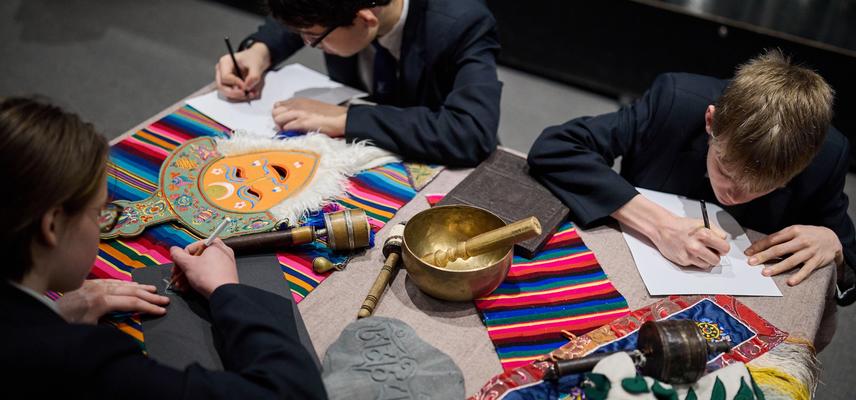secondary-and-further-education-taught-sessions/Theory-of-Knowledge
National Curriculum Subject Areas: History, Ethics, International Baccalaureate, Theory of Knowledge
Length of session: 60-90 minutes
Maximum group size: 32
Learning Outcomes
• Learn what cultural appropriation is using a specific case study to understand how it can be damaging and unethical
• Learn what assimilation is and understand how it connects to the way in which many objects in the museum were acquired
• Handle Haida objects and learn how the Pitt Rivers museum continues to work with Haida people to foreground their voices and perspectives
Session Outline
This session uses key objects and their history to understand and unpack terms such as coloniality, epistemicide and cultural appropriation. Through looking in detail at Native American and First Nations objects, students will gain an understand of the history of the objects, how they were used by the people who made and owned them, and they will hear what they mean to the ancestors of those people today. They will find out about assimilation and its connection to the acquisition of Pitt Rivers collections through the voices of Native American and First Nations peoples.
Students will handle Haida objects to learn about how the museum continues to work with Haida peoples. They will gain an understanding of some of the issues faced by Haida people as a result of colonialism.
‘I am excited about following up on this with the students and learning more myself. Thank you very much again and I hope that we can do some more things in future with the Pitt Rivers Museum.'
Tom Rawlings, TOK teacher, Leighton Park School





